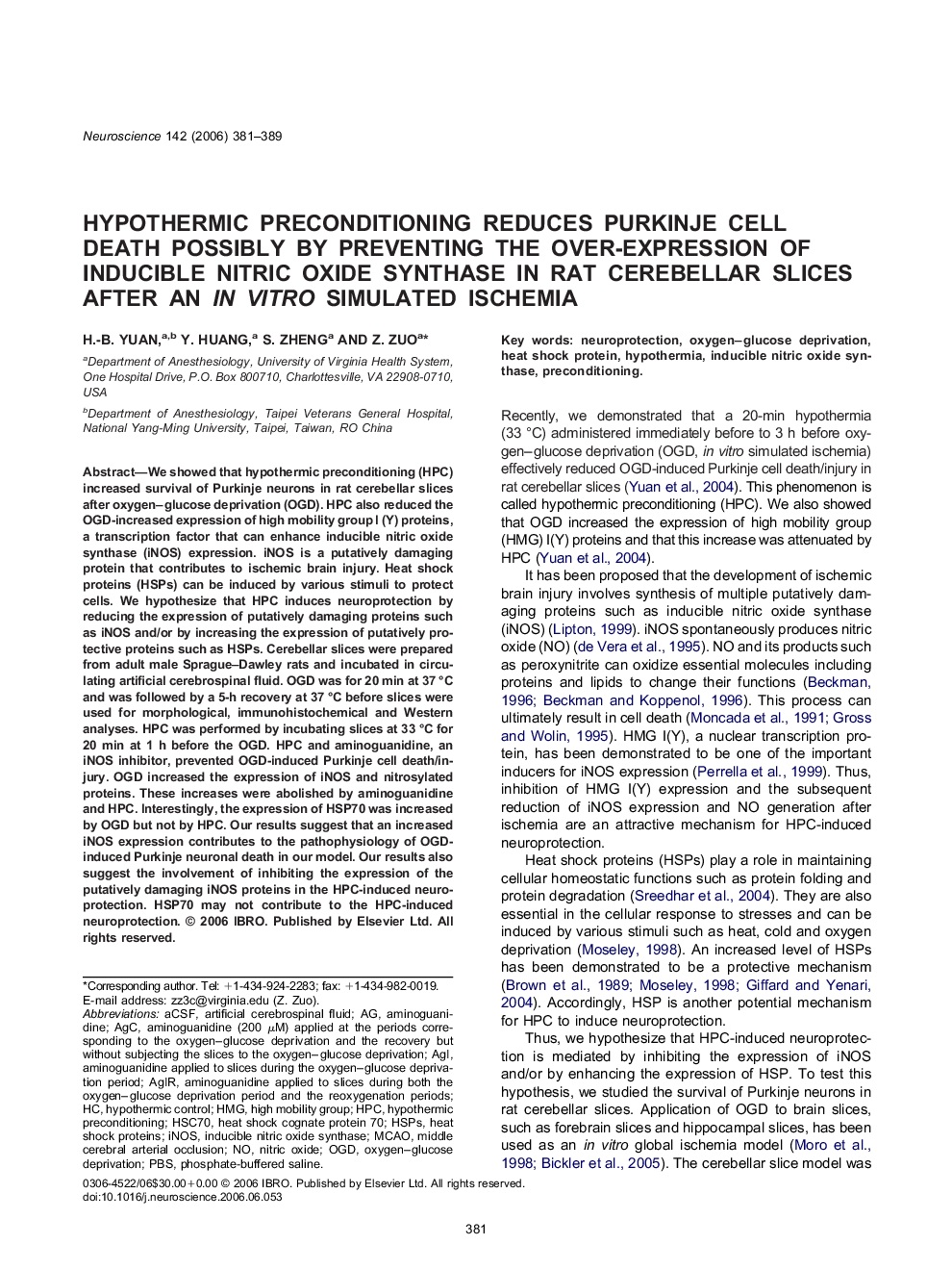| Article ID | Journal | Published Year | Pages | File Type |
|---|---|---|---|---|
| 4341501 | Neuroscience | 2006 | 9 Pages |
We showed that hypothermic preconditioning (HPC) increased survival of Purkinje neurons in rat cerebellar slices after oxygen–glucose deprivation (OGD). HPC also reduced the OGD-increased expression of high mobility group I (Y) proteins, a transcription factor that can enhance inducible nitric oxide synthase (iNOS) expression. iNOS is a putatively damaging protein that contributes to ischemic brain injury. Heat shock proteins (HSPs) can be induced by various stimuli to protect cells. We hypothesize that HPC induces neuroprotection by reducing the expression of putatively damaging proteins such as iNOS and/or by increasing the expression of putatively protective proteins such as HSPs. Cerebellar slices were prepared from adult male Sprague–Dawley rats and incubated in circulating artificial cerebrospinal fluid. OGD was for 20 min at 37 °C and was followed by a 5-h recovery at 37 °C before slices were used for morphological, immunohistochemical and Western analyses. HPC was performed by incubating slices at 33 °C for 20 min at 1 h before the OGD. HPC and aminoguanidine, an iNOS inhibitor, prevented OGD-induced Purkinje cell death/injury. OGD increased the expression of iNOS and nitrosylated proteins. These increases were abolished by aminoguanidine and HPC. Interestingly, the expression of HSP70 was increased by OGD but not by HPC. Our results suggest that an increased iNOS expression contributes to the pathophysiology of OGD-induced Purkinje neuronal death in our model. Our results also suggest the involvement of inhibiting the expression of the putatively damaging iNOS proteins in the HPC-induced neuroprotection. HSP70 may not contribute to the HPC-induced neuroprotection.
